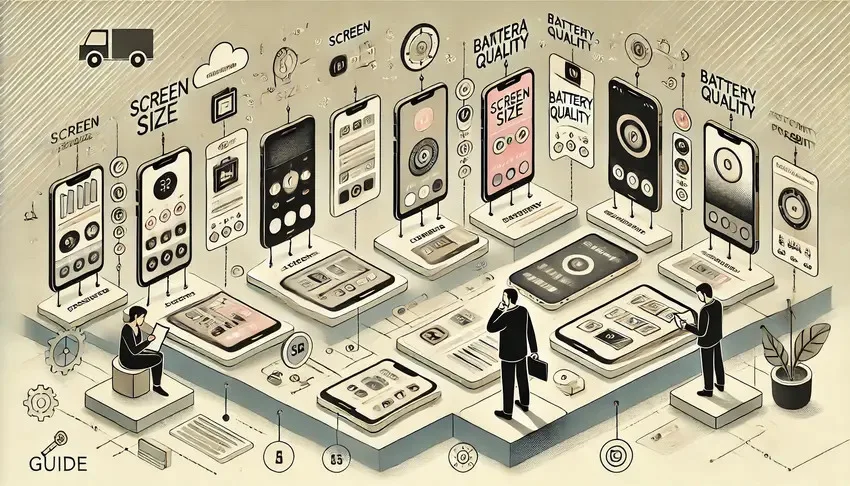How to Choose the Perfect Smartphone: A Guide for Beginners

Choosing the right smartphone can be daunting, especially with the plethora of options available in the market. For beginners, understanding the key features that matter most can simplify this decision. This guide aims to help you navigate through the essential aspects to consider when purchasing a smartphone.
Definition of Objectives: What You Need from a Smartphone
The first step in choosing the perfect smartphone is identifying your primary needs. Ask yourself: What do you mainly use your phone for? Is it for photography, gaming, browsing, or work-related tasks? Your answers will guide you toward the features that should be prioritized, such as camera quality, processing power, battery life, or display size.
Operating Systems: Android vs. iOS
One of the fundamental decisions you’ll need to make is choosing between Android and iOS. Android offers a wide range of devices from different manufacturers, giving you more flexibility in terms of price and customization. On the other hand, iOS, exclusive to Apple devices, is known for its smooth user experience and strong ecosystem of apps and services. Both platforms have their strengths, so it’s essential to consider which one aligns better with your needs and preferences.
Screen Size and Quality
Screen size and quality significantly impact your user experience. If you enjoy watching videos or playing games, a larger screen with high resolution (Full HD or better) is preferable. On the other hand, if portability is crucial, a smaller screen might be more convenient. Also, consider the type of display—OLED screens, for example, offer better color accuracy and deeper blacks compared to LCD screens.
Performance: Processor, RAM, and Storage
The performance of a smartphone is determined by its processor, RAM, and storage capacity. If you plan to use demanding apps like the CasinoGo app or multitask frequently, look for a device with a powerful processor and at least 6GB of RAM. Storage is also crucial; ensure your smartphone has enough internal storage, or the option to expand it via microSD, especially if you store a lot of media or apps.

Cameras: How to Choose the Best One for Photos and Videos
Cameras have become one of the most critical features in smartphones today. Look beyond megapixels; consider factors like aperture size, sensor quality, and additional features such as optical image stabilization or AI enhancements. For video recording, 4K capability and high frame rates are important if you’re keen on capturing high-quality footage.
Battery and Autonomy
A smartphone with a great battery life can make a huge difference in daily use. Look for devices with at least 4000mAh battery capacity if you need all-day usage without frequent charging. Additionally, consider fast charging features, which can be incredibly convenient if you’re often on the go.
Additional Features and Capabilities
Modern smartphones come with various additional features that might be important to you. These include water resistance, wireless charging, 5G connectivity, and biometric security options like fingerprint or facial recognition. Consider which of these features you might need, depending on your lifestyle and future-proofing needs.
Budget and Price: How Not to Overpay
Finally, it’s crucial to balance your needs with your budget. High-end smartphones offer top-of-the-line features but come at a premium price. However, many mid-range devices offer excellent performance and features at a more affordable price. It’s essential to evaluate whether the extra features of a flagship device are worth the additional cost or if a mid-range device meets all your needs.
Selecting the perfect smartphone involves balancing your needs, preferences, and budget. By focusing on what you truly require from a device—be it performance, camera quality, or additional features—you can find a smartphone that suits you perfectly without overspending. Remember, the best smartphone for you is one that fits seamlessly into your lifestyle and fulfills your needs efficiently.
